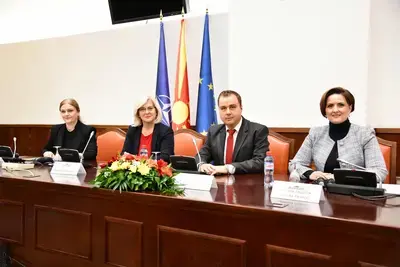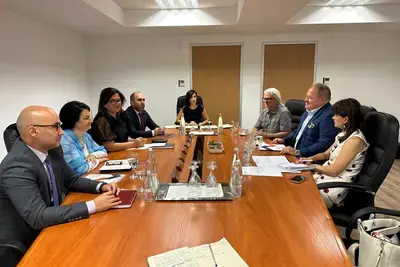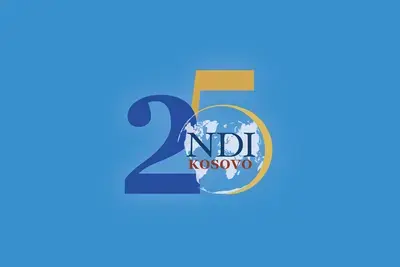
A WoW participant listens to the discussion regarding violence against women in politics and NDI’s #NotTheCost Campaign
Success Story
Kosovo's Week of Women 2017: Women are the Rule, not the Exception
On March 20, NDI kicked off its fifth Week of Women (WoW), an annual event held in Kosovo to draw attention to the need for more women in politics, provide training and networking opportunities for women leaders, and foster institutional support to promote women within parties and within the political process more broadly.
This year’s Week of Women participant cohort is one of the most diverse, coming from 33 municipalities throughout the country, representing all of Kosovo’s ethnic communities, including persons with disabilities, and representing various parties and a multitude of professional backgrounds. This year, in addition to 100 women participants, NDI has 20 men participants for the first time, underscoring NDI’s commitment to build understanding among both men and women of the challenges women face in politics and the need for policies to reflect the needs and interests of all.
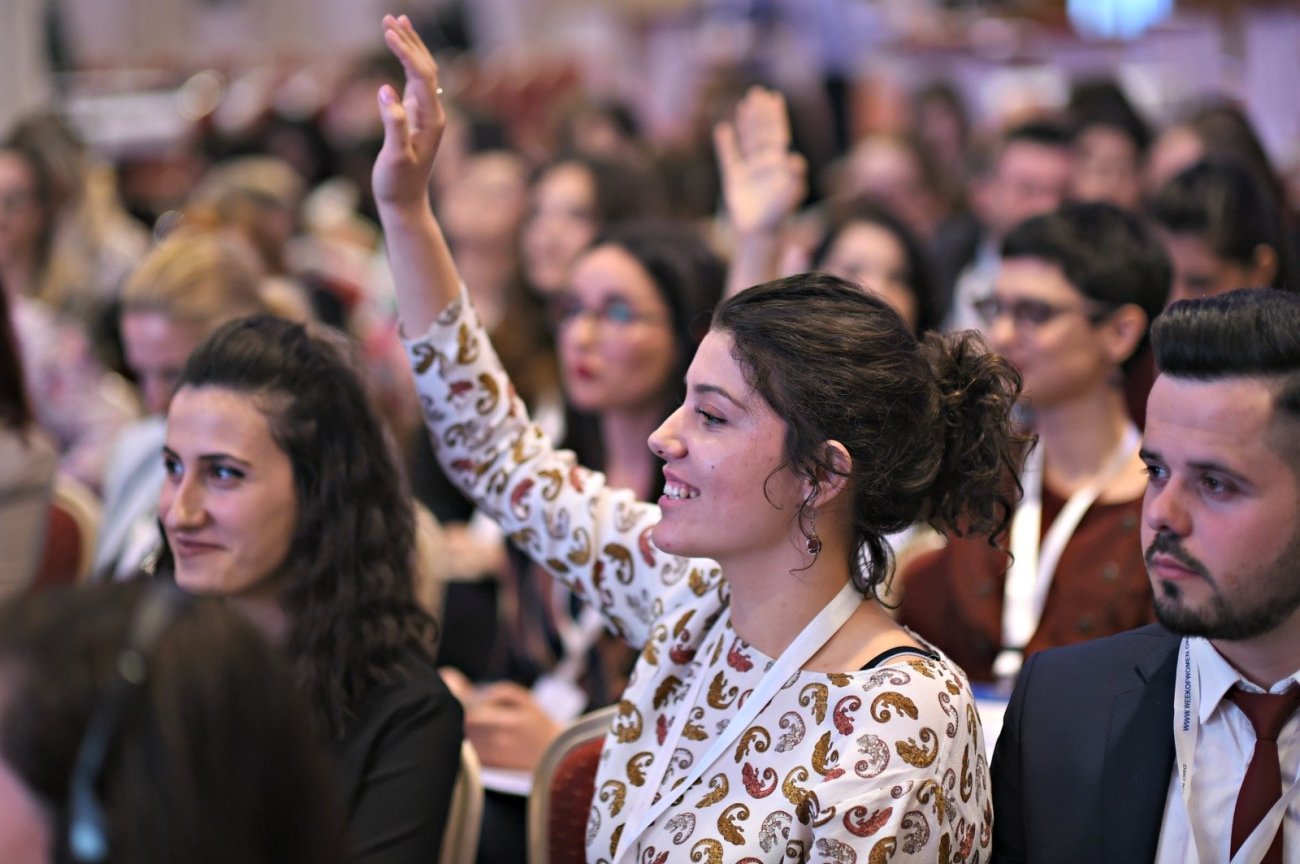
Female and male Week of Women participants engage during the second day, the theme of which was “Education: Access and Quality.”
NDI Vice President Shari Bryan spoke of the need for increasing women’s political participation: “Research shows that women in politics raise issues that others overlook, pass bills that others oppose, invest in projects others dismiss, and seek to end abuses that others ignore. Where women are able to participate in peace processes, the chances of reaching an agreement at all improve, and peace is more likely to last. And yet women all over the world are underrepresented in politics and face barriers to their participation.”
NDI began Week of Women in 2012 in response to low levels of engagement of women within Kosovo’s political parties and in the political process. Over the years, NDI has seen support for women in politics grow, and many success stories emerge from its WoW alumnae. They have advocated for and introduced new policies, positively influencing decisionmaking at the local level, in parliament, and in government. For example, Arta Tahiri, a 2012 WoW participant and elected councilwoman from the municipality of Ferizaj, developed and introduced a policy in her community to provide free childcare to single mothers - a policy which has since expanded nationwide.
This year’s WoW examines policies through a gendered perspective, looking at improving standards in education, healthcare, and the job market as Kosovo seeks to move forward with European integration. Each day offers a dedicated platform for discussion and analysis of key policy particularities within these areas, in order for future women and youth leaders to be prepared, as advocates and decisionmakers, to promote substantive changes.
U.S. Ambassador to Kosovo Greg Delawie remarked: “Here in Kosovo, in this young country so full of challenges and promise, you know full well the meaning of recognition. And as you strive for political recognition, you continue to work, as does the United States and all your partners, to recognize the needs and rights of your many communities. To recognize the essential roles that women play and will continue to play in shaping your future and that of the next generation.”
Week of Women opened with a panel discussion on violence against women in politics, putting NDI’s #NotTheCost initiative into focus to raise awareness about the global problem of violence against women in politics and encourage action to end it. Violence against women in politics targets women because of their gender; can be gendered in its form, such as through sexual violence; and discourages women in particular from being or becoming politically active.
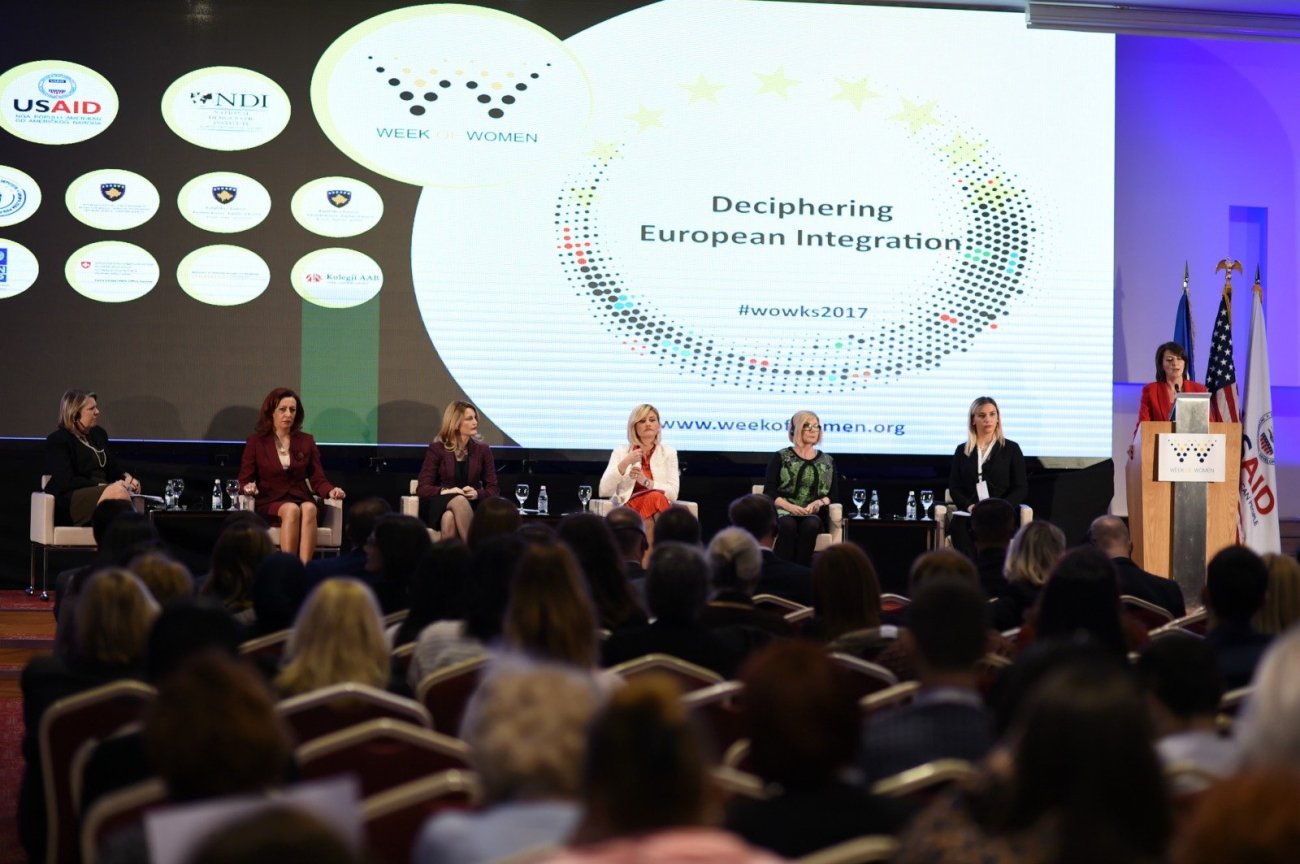
WoW panelists and participants listen to Atifete Jahjaga, Kosovo's first female president, speak during the first day of NDI’s Week of Women.
Cheri DiNovo, Member of the Provincial Parliament, Ontario, Canada, described how the threat of violence discourages many women from considering political careers, referring not just to direct attacks or harassment, but the kind that goes on in social media. “In my history as a politician, the rise in violence against women in social media has been profound….All of us, men and women, have to be vigilant to make sure this does not continue, for our daughters’ and granddaughters’ sake, so that they might want to be involved in politics.”
Minister of Justice Dhurata Hoxha commented: “Women have testified, and continue to do so, that gender is not an obstacle for success, it is the contrary. As a woman, and as Minister for Justice, I will be at the front line of this battle, which is a battle on the values of our society. Women who are currently part of the decisionmaking process need to show that women in decisionmaking are not an exception, they are the rule.”
NDI’s Week of Women program is funded by USAID, which has supported this programming since its inception. Other support for this year’s WoW comes from the offices of the President, Prime Minister, and Speaker of the Assembly, along with UNDP.
